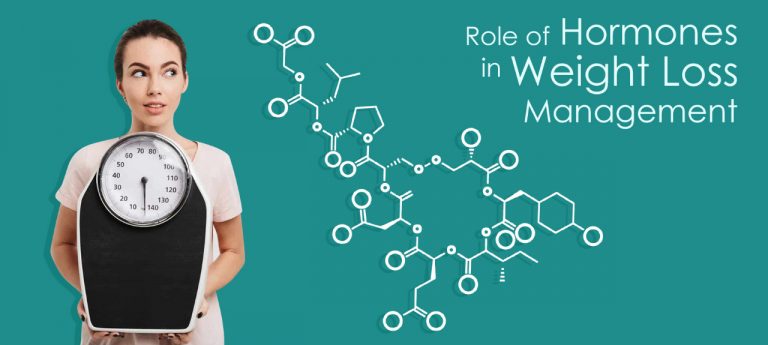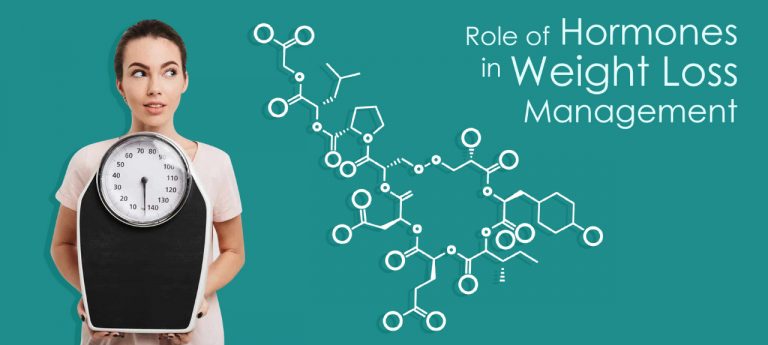
3 Hormones to Keep in Mind for Weight Loss
3 Hormones to Keep in Mind for Weight Loss: You’ve heard about diet and exercise, but did you know that your body’s internal chemistry plays a huge role in your weight management? Hormones, those powerful chemical messengers, act as a symphony within your body, orchestrating everything from hunger to satiety, and ultimately, your ability to shed those extra pounds.
Understanding how these hormones work and how to optimize their function is key to achieving lasting weight loss success.
Think of it this way: Imagine trying to navigate a complex maze without a map. Hormones are your internal map, guiding your body through the intricate pathways of weight management. By understanding the key players in this hormonal symphony, you can unlock the secrets to a healthier and happier you.
Leptin: The Satiety Signal
Leptin, a hormone produced by fat cells, plays a crucial role in regulating appetite and energy expenditure. It acts as a signal to the brain, informing it about the body’s energy stores and triggering feelings of fullness or satiety.
Leptin’s Role in Weight Management
Leptin’s primary function is to signal the brain to decrease appetite and increase energy expenditure. This is achieved through its interaction with specific receptors in the hypothalamus, a region of the brain responsible for regulating hunger, thirst, and body temperature.
When it comes to weight loss, understanding the interplay of hormones like leptin, ghrelin, and insulin is crucial. These hormones regulate hunger, satiety, and metabolism, so managing them effectively is key. To support your weight loss journey, consider incorporating delicious and healthy recipes into your diet.
Check out 5 classic Chinese recipes 500 calories make home for some tasty and satisfying meal ideas. By combining a balanced diet with regular exercise, you can effectively manage your hormones and achieve your weight loss goals.
When leptin levels are high, indicating adequate energy stores, the brain receives a signal to reduce food intake and increase metabolism, contributing to weight maintenance.
Leptin Resistance: A Disruptor of Weight Management
Leptin resistance occurs when the brain becomes less responsive to the signals sent by leptin. This can happen due to various factors, including chronic inflammation, high levels of insulin, and excessive calorie intake. When leptin resistance develops, the brain doesn’t receive the appropriate signals about the body’s energy stores, leading to a persistent feeling of hunger and a decreased metabolic rate.
This imbalance can disrupt weight management, making it difficult to lose or maintain weight.
Optimizing Leptin Sensitivity
While leptin resistance can be a challenge, there are strategies to improve leptin sensitivity and enhance weight management. These include:
- Dietary Adjustments:Consuming a balanced diet rich in fruits, vegetables, and lean protein can help optimize leptin sensitivity. Limiting processed foods, sugary drinks, and saturated fats can reduce inflammation and improve insulin sensitivity, both of which contribute to leptin resistance.
- Regular Exercise:Physical activity can improve leptin sensitivity by increasing insulin sensitivity and reducing inflammation. Aim for at least 30 minutes of moderate-intensity exercise most days of the week.
- Quality Sleep:Adequate sleep is essential for optimal leptin function. Sleep deprivation can disrupt leptin production and increase ghrelin, a hormone that stimulates hunger. Aim for 7-8 hours of quality sleep each night.
Ghrelin
Ghrelin, often referred to as the “hunger hormone,” plays a crucial role in regulating appetite and food intake. It’s produced primarily in the stomach and released into the bloodstream, signaling to the brain that it’s time to eat.
The Role of Ghrelin in Stimulating Appetite and Promoting Food Intake
Ghrelin acts as a powerful appetite stimulant, triggering the desire to eat. When ghrelin levels rise, it sends signals to the hypothalamus, a region in the brain responsible for regulating hunger and satiety. These signals activate the “hunger center” in the hypothalamus, prompting us to feel hungry and seek out food.
When it comes to weight loss, keeping an eye on your hormones is crucial. Leptin, ghrelin, and insulin all play a role in regulating appetite and metabolism. A great way to support these hormones is by fueling your body with protein-rich meals like this high protein shrimp burrito bowl.
The lean protein in shrimp will help keep you feeling full and satisfied, which can help regulate your hunger hormones and support your weight loss journey.
The Impact of Ghrelin on Hunger Cues and Its Potential Role in Weight Gain
Ghrelin levels fluctuate throughout the day, peaking before meals and declining after eating. This natural fluctuation helps regulate our eating patterns and ensures we consume enough calories to meet our energy needs. However, disruptions in ghrelin signaling can contribute to weight gain.
For example, individuals with higher baseline ghrelin levels may experience increased hunger and have a greater tendency to overeat, potentially leading to weight gain over time.
When it comes to weight loss, it’s important to understand how hormones like leptin, ghrelin, and insulin play a role. A balanced diet that focuses on whole foods, like the delicious and healthy shrimp asparagus zoodle pasta , can help regulate these hormones, supporting your weight loss journey.
By making smart choices, you can optimize your hormonal balance and work towards your goals.
Strategies for Managing Ghrelin Levels
Meal Timing and Dietary Choices
- Regular Meal Schedules:Sticking to a regular meal schedule helps regulate ghrelin release, preventing extreme fluctuations in hunger levels. This helps prevent overeating during periods of heightened ghrelin activity.
- High-Protein Meals:Protein-rich meals tend to suppress ghrelin production more effectively than meals high in carbohydrates or fats. This is because protein takes longer to digest, providing a sustained feeling of fullness and reducing hunger pangs.
- Fiber-Rich Foods:Dietary fiber also plays a role in regulating ghrelin. Fiber-rich foods promote a sense of fullness and slow down digestion, helping to control ghrelin levels and prevent overeating.
Insulin

Insulin, a hormone produced by the pancreas, plays a crucial role in regulating blood sugar levels and promoting energy storage. It acts like a key that unlocks cells to allow glucose, the body’s primary energy source, to enter and be used for fuel.
When blood sugar levels rise after a meal, insulin is released, signaling cells to take up glucose and store it as glycogen in the liver and muscles or convert it into fat for long-term energy storage.
Insulin Resistance and Weight Gain
Insulin resistance occurs when cells become less responsive to insulin’s signal, leading to a buildup of glucose in the bloodstream. This can contribute to weight gain and other health issues, including type 2 diabetes, heart disease, and non-alcoholic fatty liver disease.
When cells are resistant to insulin, the pancreas tries to compensate by producing more insulin. However, over time, this can lead to pancreatic exhaustion and eventually, insufficient insulin production.Insulin resistance can be caused by various factors, including:
- Genetics:Some individuals may have a genetic predisposition to insulin resistance.
- Diet:Consuming a diet high in processed foods, sugary drinks, and unhealthy fats can contribute to insulin resistance.
- Lack of Physical Activity:Regular exercise helps improve insulin sensitivity, while sedentary lifestyles can lead to insulin resistance.
- Chronic Stress:Prolonged stress can increase cortisol levels, which can interfere with insulin signaling.
- Sleep Deprivation:Insufficient sleep can disrupt hormone balance, including insulin sensitivity.
Strategies for Maintaining Insulin Sensitivity
Maintaining insulin sensitivity is crucial for regulating blood sugar levels, preventing weight gain, and reducing the risk of chronic diseases. Here are some strategies to improve insulin sensitivity:
- Adopt a Healthy Diet:Choose whole, unprocessed foods, such as fruits, vegetables, lean protein, and whole grains. Limit your intake of sugary drinks, processed foods, and saturated and trans fats.
- Engage in Regular Physical Activity:Aim for at least 150 minutes of moderate-intensity aerobic activity or 75 minutes of vigorous-intensity aerobic activity per week.
- Manage Stress:Engage in stress-reducing activities like yoga, meditation, or spending time in nature.
- Get Enough Sleep:Aim for 7-9 hours of quality sleep each night.
- Maintain a Healthy Weight:Losing even a small amount of weight can improve insulin sensitivity.
Optimizing Hormonal Balance for Weight Loss
Understanding how hormones influence weight management is crucial for achieving lasting success. While leptin, ghrelin, and insulin play a significant role, optimizing the balance of other key hormones can further enhance your weight loss journey. This involves addressing the interplay between diet, exercise, stress, and sleep, which all contribute to hormonal harmony.
Understanding the Role of Other Key Hormones
The following table summarizes the key functions, effects on weight, and strategies for managing other crucial hormones involved in weight regulation:
| Hormone | Key Functions | Effects on Weight | Management Strategies |
|---|---|---|---|
| Thyroid Hormone (T3 and T4) | Regulates metabolism, energy expenditure, and body temperature. | Hypothyroidism (low thyroid hormone) can lead to weight gain, while hyperthyroidism (high thyroid hormone) can lead to weight loss. |
|
| Cortisol (Stress Hormone) | Helps the body cope with stress, regulates blood sugar, and aids in inflammation control. | Chronic stress and high cortisol levels can lead to weight gain, especially around the abdomen. |
|
| Growth Hormone (GH) | Promotes growth and development, regulates metabolism, and aids in muscle building. | GH levels decline with age, potentially contributing to weight gain and decreased muscle mass. |
|
Implementing Lifestyle Changes for Hormonal Balance, 3 hormones to keep in mind for weight loss
Optimizing hormonal balance for weight loss involves adopting a holistic approach that encompasses lifestyle changes. Here’s a step-by-step guide:
- Prioritize Sleep:Aim for 7-9 hours of quality sleep per night. Sleep deprivation can disrupt hormonal balance, leading to increased cortisol levels and cravings for unhealthy foods.
- Manage Stress:Incorporate stress-reducing techniques like yoga, meditation, or deep breathing exercises into your daily routine. Chronic stress can lead to elevated cortisol levels, contributing to weight gain and other health issues.
- Regular Exercise:Engage in regular physical activity, including both cardio and strength training. Exercise can help regulate insulin sensitivity, boost growth hormone production, and reduce cortisol levels.
- Balanced Diet:Consume a balanced diet rich in whole foods, lean proteins, and healthy fats. Avoid processed foods, sugary drinks, and excessive carbohydrates, which can disrupt insulin levels and lead to weight gain.
- Hydration:Drink plenty of water throughout the day. Dehydration can affect hormonal balance, leading to increased hunger and cravings.
- Mindful Eating:Practice mindful eating by paying attention to your hunger and fullness cues. Avoid distractions while eating and savor each bite.
Examples of Hormonal Influence on Weight
“A study published in the journal “Obesity” found that individuals with higher levels of cortisol were more likely to have abdominal obesity.”
This illustrates how chronic stress can lead to weight gain, particularly around the abdomen.
“Research suggests that regular exercise can increase growth hormone production, leading to increased muscle mass and a higher metabolic rate.”
This highlights the positive impact of exercise on hormonal balance and its potential to promote weight loss.
“A study published in the “American Journal of Clinical Nutrition” found that sleep deprivation can increase ghrelin levels, leading to increased hunger and cravings for unhealthy foods.”
This example demonstrates how insufficient sleep can disrupt hormonal balance, contributing to weight gain.
Final Wrap-Up: 3 Hormones To Keep In Mind For Weight Loss
By understanding the intricate dance of leptin, ghrelin, and insulin, you gain a powerful tool in your weight loss journey. Taking control of these hormones through dietary choices, exercise, and lifestyle adjustments is the key to unlocking your body’s natural weight management system.
Remember, it’s not about restricting yourself, but about optimizing your body’s natural mechanisms for a healthier, more balanced you. So, take charge of your hormonal symphony and watch your weight loss journey transform!






